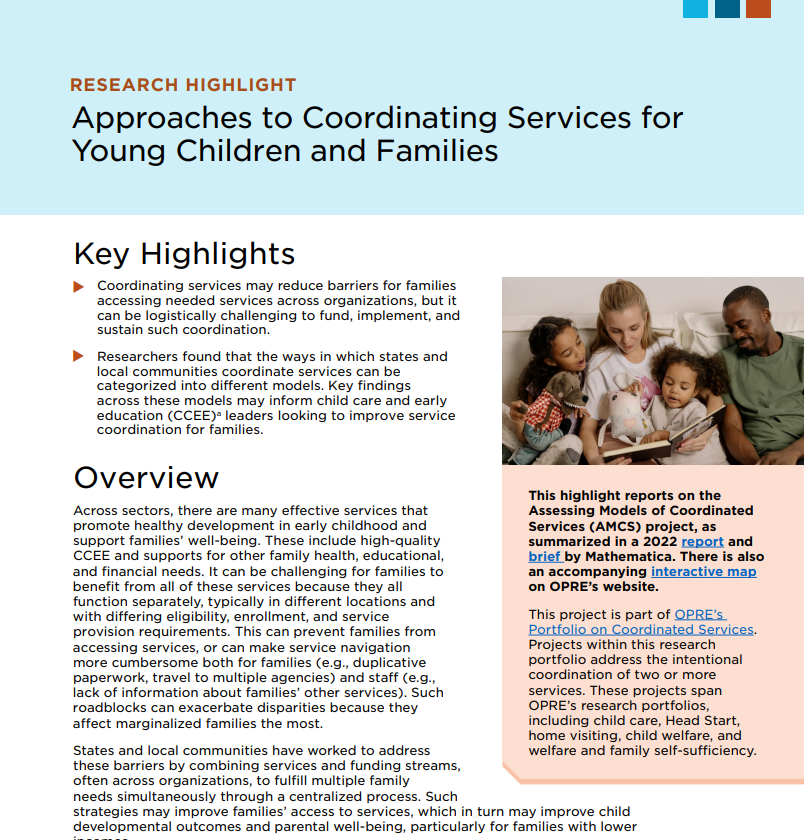A new Mathematica report published through the Administration for Children and Families reports on the ongoing Assessing Models of Coordinated Services (AMCS)
project. The project seeks to elevate successful approaches in coordinating early care and education services with other kinds of family-supporting efforts, addressing well-known challenges around ensuring families can access all the services for which they are eligible while reducing the barriers of multiple sites, duplicative paperwork, and
disparate eligibility criteria—all of which have the greatest impact on marginalized families. Through phone interviews with staff in 18 young-child-serving organizations
and virtual site visits at 8 childcare programs, the authors identify six models coordinating services in practice. Models can be grouped into efforts that are coordinated at the state level through state-level policy and investment and those that are more locally focused, typically centered on direct service provision to specific communities, populations, or to meet specific needs. While the paper does not aim to recommend one model over another, the authors do call attention to the importance of common applications to reduce administrative burden on families, opportunities to blend and braid funding, and intentionally building support for data collection that would promote coordination.

